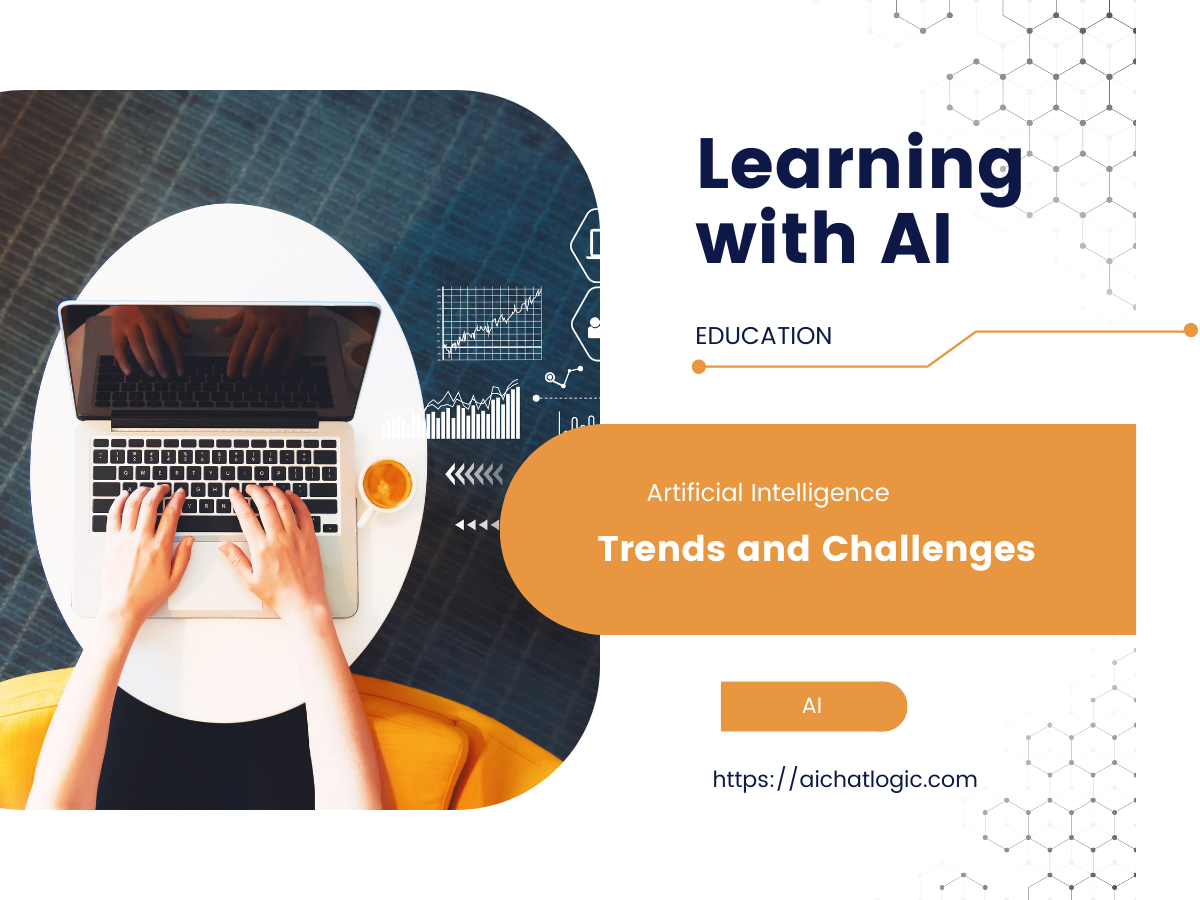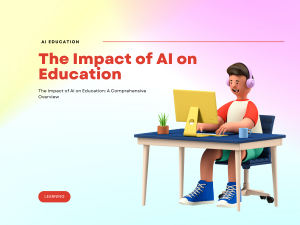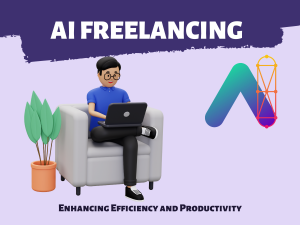1. Introduction:
AI has emerged as a game-changer in education, offering innovative solutions to longstanding challenges. It encompasses a range of technologies such as machine learning, natural language processing, and computer vision, which can be leveraged to create intelligent systems capable of supporting and enhancing learning processes. In this article, we will explore the latest trends and innovations in AI for education, uncovering how these advancements are reshaping the way we learn and teach. Discover the transformative power of AI in education and stay ahead of the curve.
2. Personalized Learning: Tailoring Education to Individual Needs
One of the most significant trends in education today is the integration of AI to personalize the learning experience. By leveraging AI algorithms, educational platforms can analyze vast amounts of data about students’ strengths, weaknesses, and learning styles. This data-driven approach enables adaptive learning paths, tailored content recommendations, and individualized feedback, fostering a more engaging and effective learning environment. Discover how the trend of personalized learning, powered by AI, is transforming education and empowering students to reach their full potential.
3. Intelligent Tutoring Systems: AI as a Virtual Learning Assistant
Intelligent tutoring systems, driven by AI, have become a prominent trend in personalized learning. These systems go beyond traditional educational approaches by providing personalized guidance and support to students, mimicking the role of a human tutor. By leveraging AI’s capabilities, intelligent tutoring systems can understand students’ queries, provide explanations, offer examples, and adapt their teaching strategies based on individual progress. The trend of AI-powered intelligent tutoring systems is revolutionizing education by delivering real-time assistance and promoting self-paced learning. Explore the latest trends in intelligent tutoring systems and discover how they are reshaping the educational landscape.
4. Automated Grading and Feedback: Streamlining Assessment Processes
AI can streamline the time-consuming task of grading assignments and providing feedback to students. By utilizing machine learning algorithms, educational platforms can automatically assess assignments, detect plagiarism, and deliver immediate feedback. This not only saves teachers’ time but also enables students to receive timely feedback, enhancing the learning experience.
5. Natural Language Processing: Enhancing Language Learning
AI-powered natural language processing (NLP) technologies have the potential to revolutionize language learning. Through voice recognition, NLP algorithms can analyze pronunciation, grammar, and vocabulary, providing instant feedback to language learners. Additionally, chatbots equipped with NLP capabilities can engage in interactive conversations, offering language practice opportunities and simulating real-life scenarios.
6. Virtual Reality and Augmented Reality: Immersive Learning Experiences
Virtual Reality (VR) and Augmented Reality (AR) technologies hold immense promise for creating immersive learning experiences. VR can transport students to virtual environments, enabling them to explore historical sites, simulate scientific experiments, or practice complex procedures. AR, on the other hand, overlays virtual content onto the real world, enhancing interactions with physical objects. These technologies engage students and facilitate active learning, making complex concepts more accessible.
7. Data Analytics in Education: Extracting Insights for Improvement
With the help of AI, educational institutions can harness the power of data analytics to gain valuable insights. By analyzing large-scale educational data, such as student performance, attendance records, and engagement patterns, institutions can identify trends, patterns, and areas for improvement. These insights can inform curriculum design, pedagogical approaches, and personalized interventions, ultimately optimizing the learning experience for students.
8. Ethical Considerations: Addressing Bias and Privacy Concerns
As AI becomes increasingly integrated into education, it is crucial to address ethical considerations. AI systems must be designed to mitigate bias and ensure fairness, especially in assessment and recommendation processes. Additionally, safeguarding student privacy and data security is of paramount importance. Striking a balance between the benefits of AI and protecting individual rights and confidentiality is essential in fostering trust and acceptance of AI in education.
9. Overcoming Implementation Challenges: Training and Infrastructure
Implementing AI in education requires overcoming certain challenges. Educators and administrators need to be equipped with the necessary skills and training to effectively integrate AI technologies into their teaching practices. Furthermore, robust infrastructure, including reliable internet connectivity and access to devices, is vital to ensure widespread adoption and equitable access to AI-powered educational resources.
10. Future Prospects: AI-Powered Education Revolution
The future of education is intertwined with AI. As the technology continues to advance, we can expect further innovations and transformative changes in the learning landscape. AI holds the potential to revolutionize education by providing personalized, adaptive, and engaging learning experiences that cater to individual needs and prepare students for the challenges of the future.
11. Conclusion
In conclusion, AI offers immense possibilities to enhance learning by leveraging personalized approaches, intelligent tutoring systems, automated grading, NLP technologies, VR/AR experiences, data analytics, and more. However, it is crucial to address ethical concerns and overcome implementation challenges to fully unlock the potential of AI in education. By embracing AI thoughtfully and responsibly, we can embark on an exciting journey towards an AI-powered education revolution.
FAQs
- How does AI personalize the learning experience?
- AI leverages data analysis to understand students’ strengths, weaknesses, and learning styles, providing tailored content and individualized feedback.
- What are intelligent tutoring systems?
- Intelligent tutoring systems are AI-powered virtual assistants that offer personalized guidance and support to students, adapting their teaching strategies based on individual progress.
- How does AI streamline grading and feedback?
- AI algorithms can automatically assess assignments, detect plagiarism, and provide immediate feedback, saving teachers’ time and enabling timely feedback for students.
- How does AI enhance language learning?
- AI-powered natural language processing technologies analyze pronunciation, grammar, and vocabulary, providing instant feedback. Chatbots equipped with NLP capabilities simulate language practice.
- What are the benefits of VR and AR in education?
- VR creates immersive virtual environments, while AR overlays virtual content on the real world, facilitating active learning and making complex concepts more accessible.
- How can data analytics improve education?
- Data analytics in education helps identify trends, patterns, and areas for improvement, informing curriculum design, pedagogical approaches, and personalized interventions.










+ There are no comments
Add yours